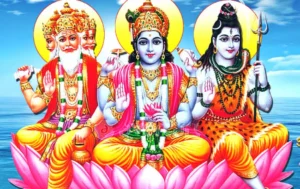The question of who created all gods has intrigued humanity for centuries, sparking debates, scholarly discussions, and philosophical inquiries. This article delves into the diverse perspectives on the origins of divine beings across different cultures and religious traditions, aiming to provide a clear and comprehensive understanding of this complex subject.
The Concept of Divine Creation Across Cultures
- Ancient Mythologies
- Greek Mythology: In Greek mythology, the question of the origin of gods leads to the primordial deities like Chaos, Gaia (Earth), Tartarus (the Abyss), and Eros (Love). From these initial beings came the Titans, and subsequently, the well-known Olympian gods.
- Norse Mythology: In Norse lore, everything began with the void called Ginnungagap, bordered by realms of fire (Muspelheim) and ice (Niflheim). The interaction between these realms led to the creation of Ymir, the first giant, from whom the gods eventually emerged.
- Eastern Philosophies and Religions
- Hinduism: Hinduism presents a complex tapestry of divine origins. The Vedas, ancient Hindu scriptures, often speak of gods coming into being as manifestations of a single cosmic entity, Brahman, who is considered the ultimate creator.
- Shinto: In Shinto, the native religion of Japan, gods or kami came into existence from the primordial chaos of the universe, coalescing into the elements and forces of nature, with Izanagi and Izanami being pivotal in shaping the world.
- Abrahamic Religions
- Judaism, Christianity, and Islam: These monotheistic religions share the belief in a singular, omnipotent God who exists independently of other gods. In these traditions, God is eternal, uncreated, and responsible for the creation of the universe and everything within it.
Philosophical Interpretations
Philosophers have long debated the concept of divine origins. The idea of a “First Cause” or “Unmoved Mover,” introduced by Aristotle, suggests that the chain of events leading to the existence of the universe and its gods must begin with something that itself is uncaused.
Modern Perspectives
In modern times, discussions about the origins of gods often intersect with psychological, sociological, and anthropological theories. Some scholars suggest that gods are projections of human fears and aspirations, created by human cultures to explain natural phenomena or enforce moral behavior.
Conclusion
While the question “Who created all gods?” may not have a definitive answer, it remains a fascinating reflection of human curiosity and the diverse ways in which cultures understand the world and their place within it. Each tradition provides its unique perspective, enriching our collective understanding of divinity and creation.
Further Reading and Resources
- The Greek Myths by Robert Graves
- The Hero with a Thousand Faces by Joseph Campbell
- A History of God by Karen Armstrong
Understanding the origins of gods offers not just a window into the divine but also into humanity’s enduring quest to understand the cosmos and its mysteries. Whether viewed through the lens of mythology, religion, or philosophy, this exploration remains a central pillar in the study of human culture and thought.





